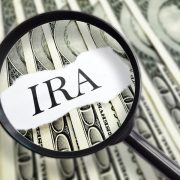 Print Friendly Version
Print Friendly Version
Fiduciary Advisers
What is a 408(g) fiduciary adviser?
ERISA consultants at the Retirement Learning Center Resource Desk regularly receive calls from financial advisors on a broad array of technical topics related to IRAs and qualified retirement plans. We bring Case of the Week to you to highlight the most relevant topics affecting your business. A recent call with an advisor in Washington is representative of a common inquiry involving investment advice fiduciaries.
Highlights of discussion
- “Fiduciary Advisers” may provide investment advice to qualified plan participants through an “eligible investment advice arrangement” that is based on a level-fee arrangement for the fiduciary adviser, a certified computer model or both [ERISA §408(g)].
- A fiduciary adviser may also work with IRA owners as well.
- Plan sponsors who engage a fiduciary adviser for their participants will not be responsible for the specific investment advice given, provided the adopting plan sponsors follow certain monitoring and disclosure rules. Plan sponsors are still responsible for the prudent selection and monitoring of the available investments under the plan and the fiduciary adviser.
- The fiduciary adviser role is part of a statutory prohibited transaction exemption for the provision of investment advice that has been around since 2007, having been created by the Pension Protection Act of 2006 (PPA-06). It has received very little attention over the years until now given the new emphasis on defining investment advice fiduciaries.
- A fiduciary adviser could be a registered investment adviser, a broker-dealer, a trust department of a bank, or an insurance company.
- To satisfy the exemption, a fiduciary adviser must provide written notification to plan fiduciaries that he/she intends to use an eligible investment advice arrangement that will be audited by an independent auditor on an annual basis. The fiduciary adviser must also give detailed written notices to plan participants regarding the advice arrangement before any advice is given.
- Every year the eligible investment advice arrangement must be audited by a qualified independent auditor to verify that it meets the requirements. The auditor is required to issue a written report to the plan fiduciary that authorized the arrangement. If the report reveals noncompliance with the regulations, the fiduciary adviser must send a copy of the report to the Department of Labor (DOL). In both cases the report must identify the 1) fiduciary adviser, 2) type of arrangement, 3) eligible investment advice expert and date of the computer model certification (if applicable), and 4) findings of the auditor.
- For detailed coverage of the fiduciary adviser requirements, refer to the Department of Labor’s final regulations.
Conclusion
Under PPA-06, plan sponsors can authorize fiduciary advisers to offer investment advice to their plan participants and beneficiaries as part of an eligible investment advice arrangement. Plan sponsors will not be held liable for the advice given by fiduciary advisers, provided all the requirements of the prohibited transaction exemption are met.











